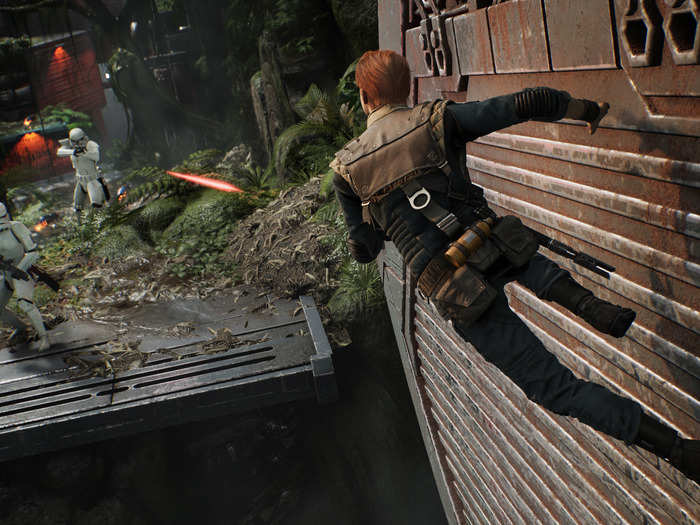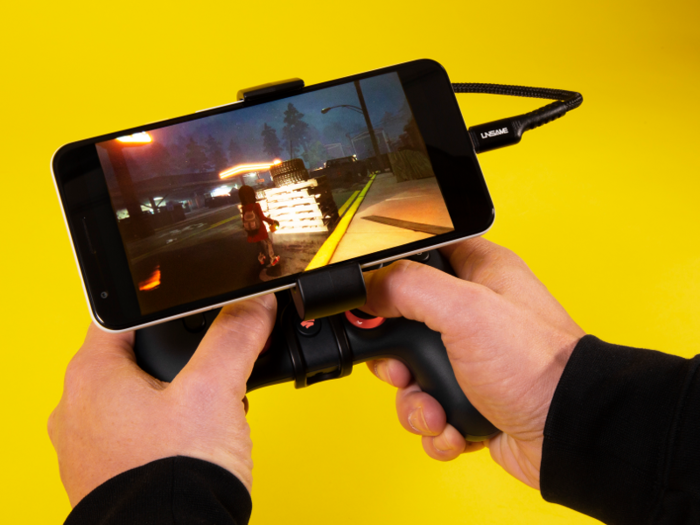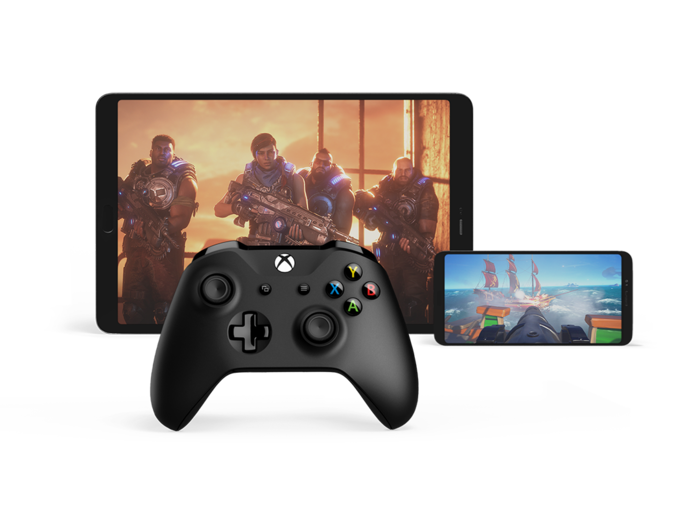- Home
- slideshows
- miscellaneous
- Before you invest in Google's ambitious new cloud gaming service, there's something you should know about your PlayStation 4
Before you invest in Google's ambitious new cloud gaming service, there's something you should know about your PlayStation 4
Meet Remote Play

A little clunky

Remote Play is a little clunky in my experience: You're literally controlling your physical console, and it wasn't necessarily designed for this new era of streaming.
If you're on vacation, and you want to play "Spider-Man" when "Horizon Zero Dawn" is what you left in the PS4 disc drive, well, you're out of luck. Another limitation: You need to have WiFi; it won't work over a cellular connection.
And there's one particular oddity: When you connect a PlayStation 4 controller to an iPhone or iPad, the center touchpad doesn't work. The Remote Play app lets you use a virtual touchpad on the screen, which is fine for games like "Jedi" that only use the button to bring up the map, but I wouldn't recommend it for the very few PS4 games that make heavy use of the button
Anyway, this is where Stadia starts to look a little better, or at least a little more elegant, by comparison: Because there is no physical console, you can play whatever games you have in your library always, at all times. There are no discs, and nothing to install — that's the whole point, after all.
You can stop playing on the TV, and pick it right back up where you left off on your phone. The Stadia controller that comes with the $129 launch kit is designed for its games. Google also promises Stadia gameplay in ultra-HD 4K resolution when streaming to devices that support it. And, in a huge boon for road warriors, it works over a cellular connection, provided that connection is 10 mbps or faster.
At launch, it only supports the Chromecast Ultra streaming dongle, Mac, PC, and most of Google's own Pixel smartphones, but it promises to expand further and support the same platforms as Remote Play in the future.
Stadia has drawbacks

I'd say that Remote Play with the PlayStation 4 you may already own is a smarter bet than Stadia, at least right at this moment in time.
First and foremost, the PlayStation 4 has way more games, period. There's no word on if "Jedi: Fallen Order" will come to Stadia at all, and Sony will presumably continue to keep console-exclusive franchises like "God of War" and "The Last Of Us" all to itself. Meanwhile, every single Stadia game, with the exception of the platform-exclusive "Gylt," is also available on the PS4.
Second off, while the Stadia supports playing games on a TV by way of a Chromecast Ultra streaming dongle, the PlayStation 4 was literally built for this purpose. While you may have the odd spat of latency playing PS4 games via Remote Play from your phone or PC, the experience of playing on that nice big TV is as pleasant as it ever was.
And, finally, there's the question of Google's commitment to Stadia. The PlayStation 4 hit the market in 2013, and the PlayStation 5 is already confirmed to drop in 2020. Stadia, meanwhile, is Google's first real foray into the video game business, and, well, the company isn't exactly known for its long-term commitment to new products.
Ultimately, I'd feel better dropping $60 for a PlayStation 4 game than I would buying the same game on Stadia for the same price.
Looking to the future

Both Sony's Remote Play and Google Stadia are hardly the only ones of their kind.
The Nintendo Switch, rather than rely on streaming, is easy to detach from the TV and take with you, which has the unique advantage of working when you're on an airplane or otherwise out of a coverage area.
Steam, the PC video game storefront, offers its own take on the Remote Play concept. Microsoft, too, lets you similarly stream Xbox One gameplay to a Windows 10 PC — with the caveat that both devices have to be on the same local network.
Speaking of Microsoft, its now-in-beta Project xCloud service is one to watch.
Like Stadia, xCloud promises to allow gamers to play Xbox titles on any device, from the console to PCs to phones, thanks to the magic of streaming. Relatedly, Microsoft is slowly rolling out a feature called Console Streaming, which will allow users to play their home Xbox One via their smartphones. It might even have an edge over PS4 Remote Play, given that Microsoft promises that both xCloud and Console Streaming will work over 4G LTE.
This seems to indicate that, depending on pricing and availability and all kinds of other little details, Microsoft has a chance to strike a balance between Sony's approach and Google's: It could be as forward-looking as Stadia in design, but still offer that optimized experience for when you're just sitting on your couch.
Either way, it's a minor miracle that any of this works at all, let alone that the notion of playing big-ticket Xbox and PlayStation-quality games on your phone is slowly becoming mainstream. My only real note of caution here is to wait for the cloud gaming scene to shake out a little bit before you make any big investment in one platform or another.
Popular Right Now
Popular Keywords
Advertisement